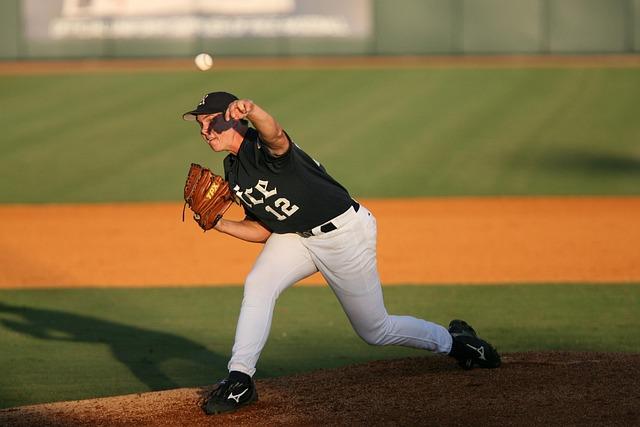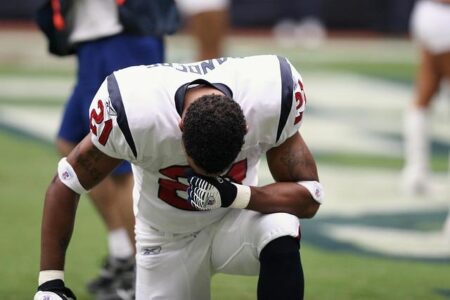The NCAA has taken a proactive stance against harassment linked to sports betting with the release of a new awareness video titled “Don’t Be a Loser.” Aimed at educating athletes, coaches, and fans about the risks and consequences of betting-related misconduct, the campaign underscores the organization’s commitment to maintaining integrity within collegiate sports. The video, now available on NCAA.org, seeks to address the growing concerns surrounding sports wagering as its popularity continues to rise nationwide.
NCAA Unveils New Video Campaign Addressing Harassment Linked to Sports Betting
The NCAA has taken a proactive stance against the rising issue of harassment linked to sports betting with its latest video initiative. The campaign, designed to resonate particularly with young athletes and fans, highlights the often overlooked consequences of betting-related pressure and misconduct. Through a compelling narrative and stark messaging, the video urges viewers to recognize the line between healthy competition and harmful behavior, emphasizing personal accountability and respect for all participants involved in sports.
Key themes explored in the video include:
- Awareness: Understanding how harassment can manifest around sports betting
- Impact: Recognizing the emotional and mental toll on individuals targeted by betting-related abuse
- Prevention: Encouraging bystander intervention and creating a culture that condemns harassment
| Aspect | Description |
|---|---|
| Target Audience | Student-athletes, fans, coaches |
| Message Tone | Direct, impactful, educational |
| Distribution Channels | Social media, NCAA broadcasts, campus outreach |
| Campaign Goal | Reduce harassment, promote safe betting practices |
Understanding the Impact of Sports Betting Harassment on College Athletes and Staff
Sports betting harassment has emerged as a hidden epidemic affecting the well-being of college athletes and staff across NCAA programs. Beyond the competitive pressures on the court or field, many individuals find themselves targets of persistent and invasive demands tied to betting outcomes. These incidents range from aggressive questioning about betting choices to psychological manipulation meant to influence performance or outcomes, leading to elevated stress levels and a toxic environment. The impact extends beyond personal discomfort, as repeated harassment can erode trust within teams and undermine the integrity of collegiate sports as a whole.
Key effects of sports betting harassment include:
- Emotional Strain: Constant pressure creates anxiety, affecting focus and mental health.
- Team Dynamics Disruption: Harassment fosters distrust, damaging cohesion and morale.
- Professional Risk: Staff and athletes risk NCAA sanctions when exposed to illegal betting influences.
| Harassment Type | Common Source | Typical Consequence |
|---|---|---|
| Coercive Betting Queries | Peers and Fans | Distrust & Anxiety |
| Performance Pressures | Coaches or Staff | Stress & Fatigue |
| Threats or Intimidation | External Bettors | Safety Concerns |
Key Strategies Recommended by the NCAA to Combat Betting-Related Harassment
The NCAA emphasizes a multi-faceted approach to reduce betting-related harassment, focusing on education, communication, and enforcement. Key among their recommendations is the implementation of clear policies that are easily accessible and consistently enforced across all collegiate sports programs. By educating student-athletes, coaches, and staff about the risks and consequences of sports betting harassment, the NCAA aims to foster a culture of respect and accountability within athletic communities.
To strengthen these efforts, the NCAA encourages institutions to:
- Develop reporting mechanisms that allow athletes to safely and confidentially report harassment incidents linked to betting pressures.
- Train personnel to recognize signs of harassment and intervene effectively before situations escalate.
- Partner with external organizations to provide resources and counseling for impacted individuals.
| Strategy | Purpose | Expected Outcome |
|---|---|---|
| Clear Policy Enforcement | Ensure consistent standards | Reduced recurrence of harassment |
| Anonymous Reporting | Increase reporting rates | Early intervention |
| Training & Education | Raise awareness | Empowered community members |
How Institutions Can Implement Effective Policies Following NCAA’s Anti-Harassment Guidelines
Institutions should begin by conducting comprehensive training sessions that emphasize the NCAA’s stance on harassment related to sports betting. These programs must clearly define unacceptable behaviors, outline reporting mechanisms, and promote a culture of accountability. Incorporating interactive elements, such as scenario-based role-plays and anonymous Q&A forums, can enhance engagement and understanding among athletes, coaches, and staff. Ensuring transparency by regularly publishing compliance reports and updates helps maintain institutional integrity and builds trust within the community.
Policy implementation can be streamlined using a multi-tiered approach that includes:
- Clear communication: Distribute concise policy briefs and visual aids summarizing key points.
- Dedicated support: Establish confidential counseling and reporting channels.
- Regular audits: Schedule quarterly assessments to monitor adherence and effectiveness.
| Policy Element | Action Step | Frequency |
|---|---|---|
| Education | Mandatory workshops | Bi-annual |
| Reporting | Anonymous hotline | 24/7 availability |
| Monitoring | Compliance review | Quarterly |
In Summary
As the landscape of collegiate sports continues to intersect with the expanding world of legalized sports betting, the NCAA’s proactive approach underscores the importance of integrity and respect within the athletic community. Through its new anti-harassment video, the organization aims to educate student-athletes and fans alike about the pitfalls of betting-related misconduct. This initiative marks a crucial step in fostering a culture that prioritizes fair play and personal accountability, ensuring that the spirit of college sports remains untainted in an era of growing gambling opportunities.





